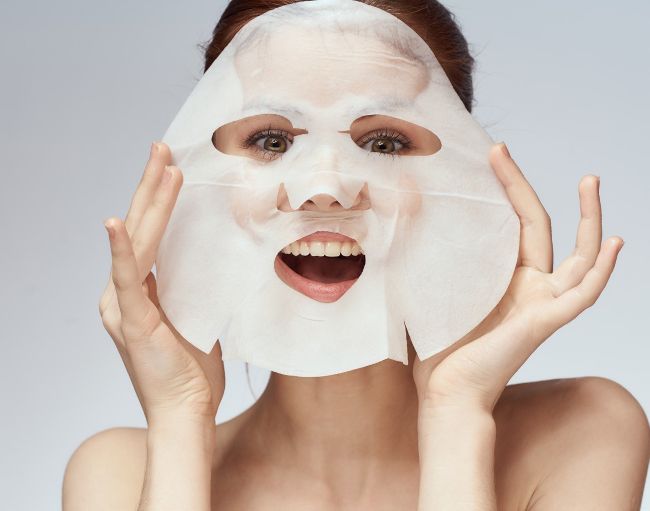BUSINESS TIPS
ASK THE Experts
Our experts answer questions around all aspects of the industry

Image from Shutterstock
What is the importance of building a home skincare routine for clients and how do I make sure they maintain it?
Following a skincare routine is one of the most important things our clients can do to help maintain the work we carry out and to benefit fully from our treatments. Beauty professionals must be meticulous about mentioning the importance of a fastidious skincare routine to their clients, and I discuss this before any treatment and as part of aftercare.
Skin professionals should be advising their clients on the four most important factors of skincare: cleansing, hydrating, moisturising and protecting. I am constantly preaching this mantra to all of my clients. I tell them to cleanse morning and night with the right cleanser, hydrate by drinking plenty of water and avoid excess caffeine and alcohol, moisturise with the right type of moisturiser and protect with SPF – daily, no matter what the weather!
As specialists, we should be advising on the right products and personally tailoring this advice to each client. Product avoidance is also key to good skin and we must also enlighten our patients about which ingredients are suitable and effective. I include all of this information into every appointment, regardless of which treatment the client is booked in for, and then set out a treatment plan if they wish to proceed.
As part of my clinic’s protocol, I keep a tight and up-to-the-minute database of all our clients’ histories. When a client comes in for a procedure or treatment (after having first had a consultation), we know what they want, what they need, what we can provide, their state of health, medication and any products they use that may be detrimental to their dermal upkeep and maintenance (or which may even counter-effect the products we recommend). Any advice we have offered is also kept on their file.
We then draw up a personal and comprehensive treatment and maintenance plan for their skin goals via any pharmaceutical or cosmeceutical routes we deem necessary. Any products they take from us are logged and we book follow-up review appointments to make sure that the treatment is progressing well, to see how each patient is getting on with their tailored routine and to prescribe more products if needed.
Personal touch is very important. I take each case as a standalone and have a genuine interest in every client, so the informal chats that take place in appointments also give me a lot of necessary information about how they are keeping up with their routines and any changes they have seen.
Parisa Bahramian is a skincare specialist at Estetica Clinic in Chertsey and a member of the Royal Pharmaceutical Society.
Is it possible to use sheet masks in a sustainable way?
The simple answer is yes! Do not be fooled into thinking that all sheet masks are the same, or that just because they are a single-use product, they’re all a bad environmental choice – that is not necessarily true.
There are brands out there which have put a huge amount of research and resources into ensuring their sheet masks and packaging are both ethically sourced and sustainable. For example, suppliers could be asked if they have organic certification or if they use ecological farming methods. Salon owners need to do their own research into whether a sheet mask brand can actually provide proof of its sustainability programme.
A good way to gauge what is available in the industry is to stay in the loop with professional news. Use the resources available to you such as trade press, professional trade shows and professional sites on the internet. There is nothing wrong with also contacting the brand directly and asking them for their sustainability credentials if they are not readily available. Trade shows and trade press are also great ways to keep up to date with trends, new formulas and what brands are doing to protect the environment. As with anything, knowledge is power and so by keeping an ear to the ground, you can ensure your salon is stocking the best sheet mask options to utilise within treatments and retail to clients for home use.
Things to look for include valid certifications and logos so check your supplier’s sustainability credentials. Examples would be The Vegan Society’s logo, being certified cruelty-free by PETA, or the Forest Stewardship Council logo which confirms that the paper, wood and card packaging being used comes from a forest source that is being managed in a way that preserves biological diversity and benefits the lives of local people and workers, while ensuring it sustains economic viability. In order to add these official logos or certification credentials to their product packaging, a brand must apply and register with the association to authenticate the product/packaging.
Look out for sheet masks that are constructed from a sustainable source, such as bamboo fibres, that are 100% natural and biodegradable, so after use, rather than placing them in the waste bin, they can be added to a garden compost bin to biodegrade within a matter of weeks. Some suppliers may also have a recycling programme for you to return the sheet mask sachets so that they could, for example, be turned into plastic pellets, which are then used to manufacture playground equipment and park benches.
In terms of formulas to look out for, ask your sheet mask supplier if theirs are plant-based, whether ingredients are ethically sourced, and whether the formulas are also water free – another huge factor when looking at sustainable options.

Image from Shutterstock
Deborah Carrington is a national trainer for +maskology with over 30 years’ experience in the industry as a salon owner and beauty educator.
DO YOU HAVE ANY QUESTIONS TO PUT TO OUR EXPERTS?
Send your questions about absolutely anything to do with running a beauty business to joanna@probeauty.co.za